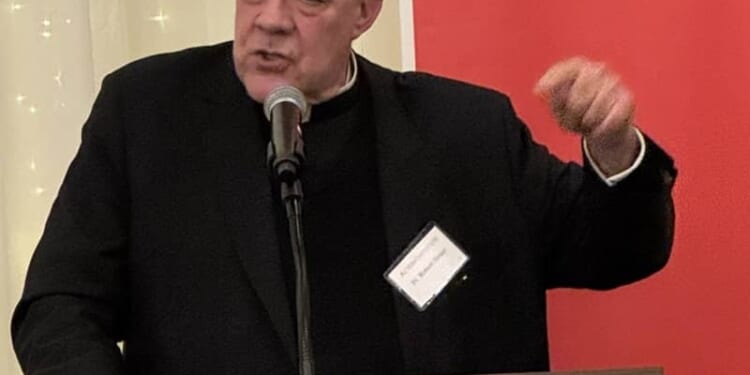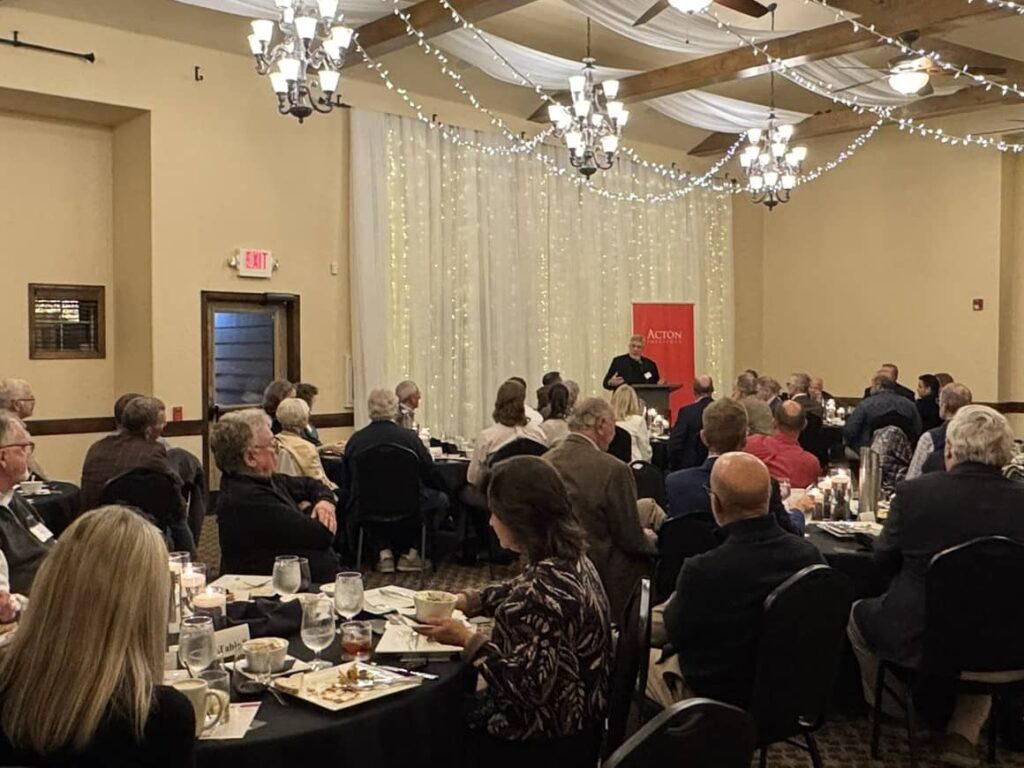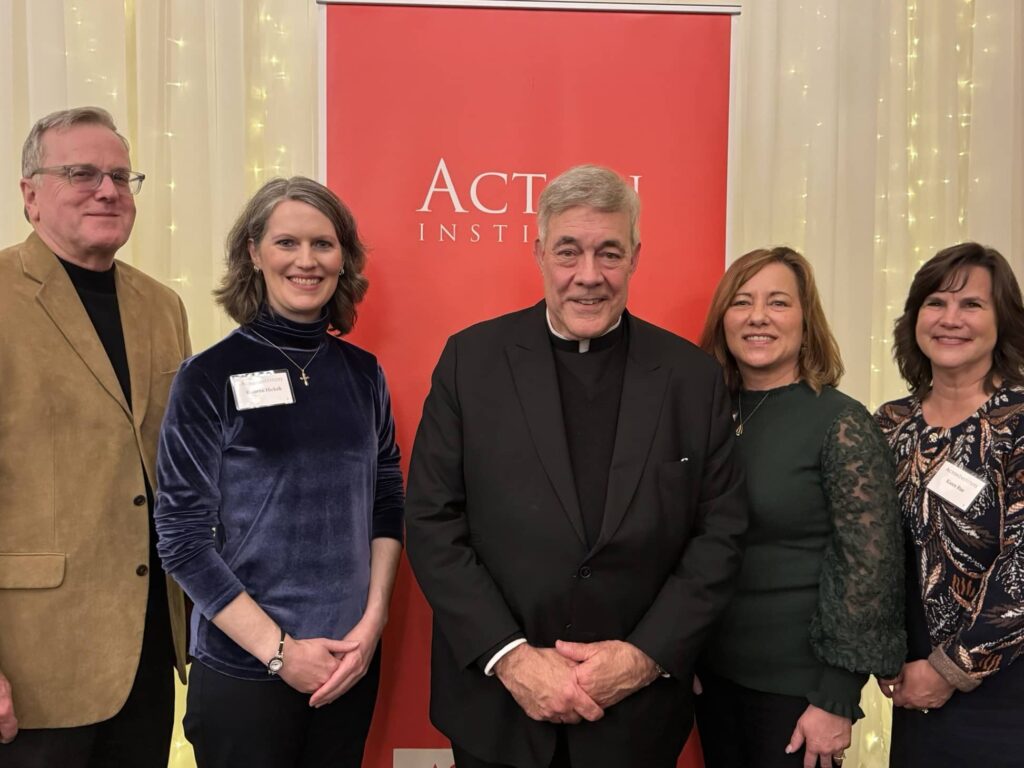By Naomi Inman
On October 21, the Acton Institute held its Portland Dinner at The Aerie at Eagle Landing in Happy Valley. Father Robert A. Sirico, Acton’s Founder and President Emeritus, presented the keynote address, “A Conversation on the Future of Faith and Freedom.” Cascade Policy Institute and David and Laurie Hendersen cosponsored this event.
——–
On a beautiful fall evening overlooking Happy Valley, Father Robert A. Sirico shared a warm and personal reflection on the roots of freedom. Weaving stories of his journey from a Brooklyn childhood through years of leftist activism, he traced the threads that led him to discover a personal faith and the moral roots of human freedom, a virtuous society, and market economics.
Recalling his years of making placards to participate in the 1970s protest culture, he encountered a turning point when an acquaintance challenged his socialist ideals. This new friend showed up on his birthday, delivering a stack of books by Friedman, Hayek, Bastiat, Rand, and Mises.
“Happy birthday, Sirico,” he said. “Read!”
“I began reading those books!” Sirico laughs. “Questions began forming in my mind about private property and stuff. I went back to my Trotskyist friends who warned me, ‘He’s just a fascist! Don’t listen to him.’”
So began Sirico’s intellectual, economic, and political conversion. He soon came to see private property not as the rights to an object, but as the right and freedom to engage one’s intellect and labor to draw from nature and transform it for the use of others—the creative and market process.
Along his conversion path, a whole new worldview began to form as he learned about human dignity, the right to private property, and basic moral ideas drawn from the natural law and traditions of Western Civilization—from Aristotle and Thomas Aquinas.
Modern Polarization and the Loss of Moral Grounding
Today’s culture confronts us with a civilizational shift. Where once societies were led by the “little platoons” Alexis de Tocqueville admired—family and neighbors, teachers, pastors, business leaders, doctors, and lawyers—we now have politicians and bureaucrats absorbing society and governing everything.
Where once people connected to their communities set the moral tone in society and governed the soup kitchens, schools, hospitals, and town halls, these institutions have become bureaucratized and politicized. Subsidiarity (the principle that communities’ social and political decisions should be made at the lowest level possible) has been crowded out by the state.
It seems people, these days, refuse to engage in argumentation, logic and dialogue. They speak instead in terms of class warfare and conflict to bring about a revolution and an ill-defined new world. The moral tone of society has shifted from a sense of objective morality, expressed in the natural law, to the politicization and polarization proposed by Karl Marx to set up a revolution of class struggle.
A Call to Moral Vocation and Hope
Sirico called on leaders to propose a new vision of society. “There is another moral vision we can reassert if we understand it,” he urged. “Understand that you are engaged in a moral endeavor, not just an economic one. You are living out the moral right to the use of the property you have created. Until society once again sees business as a moral vocation, we will continue down this path.”
A market economy allows creativity and exchange to happen, imposing moral obligations on us all. It allows us to have “winners and winners,” while a socialist economy pits us against one another so that we are constantly at war with one another. As Saint Teresa of Calcutta said, “We don’t believe in class struggle and class warfare; we believe in class encounter: where the rich save the poor and the poor save the rich.”
Sirico urged business leaders to see their work as a moral vocation. Profit alone doesn’t prove virtue; but in a free economy, moral action (creativity and production) can flourish. He praised the work of organizations like Cascade Policy Institute and leaders like David and Laurie Hendersen who uphold these ideals and get the word out.
When asked if he is optimistic, Sirico contrasted optimism with hope. “Optimism is about optics—how you see the thing. That can change. What I am is hopeful because I believe in the power of truth.”
“The production of goods is the result of a free society,” he concluded. “If we can maintain that human dignity and economic liberty are grounded in natural and moral law, then I think we can have hope—not optimism—for the next generation.”













